Introduction
In the summer of 2018, outside observers drew upon rumors in Beijing and a series of curious events to raise the possibility that a trade war between China and the United States had diminished Xi Jinping’s authority. These developments once again posed the question of how to think about the relationship between elite politics and foreign policy in China. Partly because good information is so sparse, analysts regularly look to Mao Zedong and Deng Xiaoping to provide context.
What we now know about recent Chinese history suggests that not only Mao, but, as opposed to a viewpoint commonly expressed among China watchers and especially the media, also Deng were exceptionally powerful leaders largely unrestrained by institutions and opposing “factions.” This state of affairs meant that foreign policy decisionmaking was essentially firewalled from questions of political authority—no one thought about punishing the top leader for their policy toward the outside world. The historical record is also interesting for how rarely the leadership had serious differences of opinion on external relations.
Although elite politics in China today remain opaque, Xi shares many of the strengths of his predecessors, as well as one or two unique to him, which means we have reason to believe Xi has significant leeway to determine China’s foreign policy. Yet Xi lacks critical advantages held by Mao and Deng. Unlike his predecessors, a very slight possibility does exist that foreign policy failures would impact Xi’s authority—but only as part of an unlikely series of events and in conjunction with other factors.
Mao Zedong
A common refrain about Xi Jinping is that he is the most powerful Chinese leader since Mao Zedong. The prominent scholar Tai Ming Cheung has even argued that Xi exceeds his predecessor in authority. But what does it mean exactly to compare an individual to the founder of the People’s Republic of China? Although sinologists have at times described Mao as a man constantly struggling with a less radical faction, especially after the Great Leap Forward, the available historical evidence now tells a story of a leader with continuously stunning power and unquestioned authority.
During much of the 1950s, although he often allowed for debate, Mao made the final decisions. By the Cultural Revolution, however, the top party hierarchy lived in abject fear of the chairman. At the 1st Central Committee plenum of the 9th Party Congress in 1969, he could not even persuade anyone to express their opinion:
Old Dong [Biwu] won’t talk, who will talk! C’mon, this is a Politburo meeting! Be a little democratic! I have nothing new to say… Well? Shall we continue the meeting? You all won’t talk. [Zhou Enlai interjects to say: “That’s about it.”] Then let’s end the meeting.
What explains such power? First, authority in the Chinese Communist Party (CCP) was inherently linked to revolutionary legacies, and in this regard no one could compete with Mao. Second, Mao’s triumphs through 1956 suggested that he had a preternatural ability to correctly judge a situation. Third, he had close personal control over the People’s Liberation Army (PLA) and the Central Guards Bureau. Fourth, the Chinese people fully believed in the chairman, which meant that any coup would have led to civil war. Fifth, the party lacked institutional constraints on the top leader. Sixth, the party had powerful norms favoring political discipline. Finally, any open criticism of the leadership threatened to destabilize the regime as a whole.
Unsurprisingly, these advantages translated into an ability for Mao to make foreign policy decisions without fear of an opponent seeking political support through a competing platform. Even compared to other issue areas, Mao had special interest and a heightened level of personal control in the foreign policy domain. Although Mao allowed skeptics to express their hesitance about entering the Korean War, he had already essentially made up his mind that China would intervene. Mao ignored advice from his own specialists, once remarking that “I have a little bit of American President Nixon’s style, I don’t trust reports by my own Foreign Ministry and some embassies.”1 By the late Cultural Revolution, no one was even given a chance to discuss—one top foreign policy official described this period by saying: “What policy debate? It was just a matter of doing what Mao decreed.”
Although Mao’s dominance was never in question, foreign policy occasionally had implications for other top leaders. In 1962, despite international tensions and disaster at home, Mao reversed steps toward a less radical foreign policy because of his concerns about the broader political atmosphere among the elite, an act that involved purging a top foreign ministry figure who misread Mao’s changing moods. Mao’s decision to attack Soviet forces on the border in 1969 was likely partly intended to reassert stability at home after the chaos of the early Cultural Revolution. Mao often made up or exaggerated differences on foreign policy with others to make a point or damage their authority.
Deng Xiaoping
For many scholars, the Deng Xiaoping era represented a rejection of this political model. Even John Oliver on his HBO program “Last Week Tonight” spoke of “post-Mao guardrails.” Deng’s legacy as a reformer is also connected to a narrative of continuous battles against a powerful “conservative” faction led by another party elder—Chen Yun. However, a wide variety of new evidence over the last few years suggests that these earlier assessments require revision. In the words of Li Rui, a party veteran who served under both Mao and Deng, Deng was “half a Mao Zedong.”
Deng actively resisted the installation of meaningful institutional restrictions and was always able to force a decision in his favor whenever he made up his mind. Like Mao, Deng’s authority came from his prestige as a revolutionary leader; his position as head of the Central Military Commission (until 1989); norms of obedience, weak rules, fear of chaos; and, at least up until 1987-89, a sense that his record was strong and deserved respect. Like Mao, Deng dominated foreign policy more than other areas. Crucially, however, Deng never held the top formal positions of leadership, preferred to keep his position as “mother-in-law” of the party secret from the public, and he rarely managed practical affairs. Deng wanted supreme authority but did not want to be seen as abusing that power, and he had a more practical mindset on policymaking and demonstrated an ability to reverse course in the face of setbacks.
Deng’s authority allowed him to execute a fundamental change in Chinese foreign policy—the move away from a focus on preparing for war. In 1985, he cut the size of the military by 1 million, an act which caused intense personal feelings among the top ranks. Unhappiness reached such levels that Chief of Staff Yang Dezhi said he was afraid to see his friends or even answer his phone. In June 1985, Hu Yaobang, the general-secretary of the party, said in an interview with a Hong Kong news organization that:
There has always been a practice of arranging seniority according to length of service in the Army. With Comrade Deng Xiaoping taking charge, it is sufficient for him to say one sentence, but we [Hu and Zhao Ziyang] have to say five sentences. Our five sentences also work, but he has to utter only one sentence. This does not take him a lot of time and energy but it can save our time.2
Although for much of the 1980s Deng did delegate some foreign policy management to Li Xiannian (who served as party vice chairman and then president), Li regularly clarified that his work was conducted according to Deng’s ideas and that Deng had the final say. According to interviews with Chinese historians, the requirement for Deng’s approval on decisions rankled Li. In 1982, Hu Yaobang received a warning from “the top” that he was playing too much of an independent role in foreign policy. Hu said, “I was a mouse who stepped on the scales to weigh himself,” a Chinese expression meaning he did not know his own place. Deng could even force on Chen Yun the humiliation of reading from a prepared speech when meeting with a Soviet visitor. When an official at the foreign ministry was tasked with writing a report on whether China should improve ties with the Soviet Union, he wrote two reports—one in favor, one against—so that he could submit the “correct” one when he understood what Deng wanted.3 At a June 1985 Politburo Standing Committee meeting, Chen Yun, Li Xiannian, and Hu Yaobang expressed some disagreement with Deng’s grand strategy, but Chen affirmed that he would support Deng. By 1991, Deng had resigned from all formal positions and his popularity had plummeted because he fired two general-secretaries and could neither prevent the Tiananmen protests or resolve them peacefully. Yet still he had the ability to end plans to support hardliners in the Soviet Union before and after the August coup.
Significantly, some evidence even suggests that Deng’s antipathy towards democratic procedures was in large part related to foreign policy reasons. Zhao Ziyang, who served as both premier and general-secretary of the party in the 1980s, recalled:
I remember an instance, sometime in the early 1980s, when the topic of the Soviet invasion of Afghanistan came up, Deng said I think that America is inferior to the Soviet Union, all the Soviet Union needed to do was hold a meeting of the Politburo [to make the decision to invade], could America achieve such a thing? Another time when Deng was talking to foreign guests he said that America had three governments, when interacting with them you don’t know who makes the final decision, whose words really count, they mutually restrain each other, argue back and forth, it’s hard to do anything.
Like in the Mao era, foreign policy mistakes by people under Deng could have implications. Hu Yaobang’s November 1986 decision to invite Japanese Prime Minister Yasuhiro Nakasone, as well as 3,000 young Japanese, to visit Beijing, damaged his standing, as this act played an important role in causing significant student protests. Zhao Ziyang’s mishandling of a meeting with Mikhail Gorbachev in May 1989 had fatal implications for his position during the Tiananmen Square protests.
Despite some debates within the elite, foreign policy differences during the Deng-era were not fundamental. Counter-intuitively, the one significant case where Deng forced a very unpopular decision among the elite on foreign policy, the war in Vietnam in 1979, actually enhanced his standing vis-à-vis Mao’s initial successor Hua Guofeng, as Deng’s ability to get what he wanted demonstrated his authority. The subsequent poor showing by the PLA, moreover, did not arrest Deng’s gradual move towards undisputed leader.4
Xi Jinping
Historically, both Western China watchers and even high-ranking party officials have often misinterpreted the behavior of the top Chinese leadership.5 It is hard to over-estimate how little we truly know about elite politics in today’s China. With these caveats, it does appear that Xi enjoys many of the assets that the historical record tells us mattered for Mao and Deng. Like these two predecessors, Xi can manipulate a fear of chaos, weak rules, and norms of obedience. Like Mao, but unlike Deng, Xi has also gone to great lengths to ensure that his authority is formalized.
On some other parameters, the situation is more opaque—Xi has certainly demonstrated a keen interest in exerting strong personal control over the military and elite police forces, but his level of success is unclear. He lacks any real revolutionary prestige, but he has displayed a sensitivity to the importance of a compelling personal story (as the son of a revolutionary and a sent-down youth). The trappings of a “personality cult” in terms of propaganda, as well as the anti-corruption campaign, may be a way of attracting popular support that would make potential detractors in the elite wary of taking risky steps, but the scale of the Mao-era is still distant. Xi has some real accomplishments to emphasize, but his reputation and contributions are far from legendary.
What does this mean for American foreign policy toward China? One question to consider is whether Xi has sufficient reason to act confidently in ways opposed by the majority of the elite. The answer is probably yes. Although some party leaders almost certainly express different opinions on foreign policy, they would almost certainly not try to force their position by implying Xi would lose their support—such an action would risk the end of their careers. Canvassing for support or loudly expressing dissatisfaction would leave someone open to charges of factionalism and lack of organizational discipline. Xi is undoubtedly sensitive to opinions of his colleagues in the elite, but for policy differences to ultimately matter for his authority they would have to be so severe that the plotters felt the substantial risks of a failed coup were less pressing. In any case, determining just how much Xi’s ideas on foreign policy are idiosyncratic vis-à-vis his peers is difficult. Crucially, Xi does not appear to have radical intentions for transformation and mobilization at home that would require Maoist-style aggressive foreign policy.
Another possibility is that Xi might be tempted to take big foreign policy risks to please the PLA, point to victories in his column, summon popular support, or rally the elite in a time of crisis. Perhaps, but that would risk catastrophe and might not be necessary in the first place. Unless pressures and failures mount higher and higher, Xi has reason to believe he has enough cushion to act prudently.
Could Xi’s political model of leadership create pathologies in policymaking? The New York Times raised the possibility that Xi’s dominance meant officials do not communicate bad news or take initiative, but also quoted a Chinese professor, Chen Dingding, who saw evidence of a healthy debate. This question is particularly difficult to answer because both Mao and Deng were powerful leaders, but the latter more often demonstrated an open-mind and the capacity for course correction. We simply do not know enough about how foreign policy is made to answer these questions. Yet despite a political tightening, Chinese foreign policy intellectuals continue to openly debate various potential strategies. In at least one case, China demonstrated an ability to reverse course when a policy was not working. After more than a year of criticism and boycotts, Beijing ended a costly feud with South Korea over Terminal High Altitude Area Defense (THAAD), leading the New York Times to conclude that: “Mr. Xi appeared to have decided that he could afford to blink.”
If differences on foreign policy would probably not hurt Xi, could foreign policy failures? Obvious failures would make it easier for a victorious coalition to justify action. However, in the middle of a crisis, even one accidentally caused by Xi, it is hard to imagine anyone risking charges of treason or political collapse by trying a power grab. If continuities with the past are strong, Xi is more likely to use alleged failures against his opponents than vice versa.
Ultimately, the most likely scenario for foreign policy setbacks to matter for Xi would be to serve as part of a story told by victorious conspirators who acted out of desperation primarily for other reasons, especially fear for their own personal safety. That is only a small possibility, but one essentially impossible during the Mao or Deng era. The significance of such an act is hard to guess. Although the victors would almost certainly criticize how Xi executed foreign policy, they are also likely to emphasize continuity and adhere to fundamental guidelines set during events like the 19th Party Congress.
These political dynamics suggest that Washington should be skeptical about policies that assume Chinese politics works like a popularity contest. The nature of power in Leninist regimes is much more complicated and contingent. Certainly, Xi’s dominance intensifies the pressure upon him to point to wins over the long-term, and a sense of real drift and crisis may someday force some in the leadership to drastic measures. Yet unpopular policies and policy failures, to the extent they may or not may exist, do not inevitably and swiftly lead to a victorious countervailing coalition. The prospect of a group of individuals motivated primarily by support for a different foreign policy to either impose upon him a new policy or force him to resign is highly unlikely. China-watchers should be skeptical about rumors to the contrary. Even under a new leadership, we have little reason to believe China’s policies would be dramatically different. The United States may have other mechanisms to affect Beijing’s calculus—but the most effective road does not go through elite politics.
-
Footnotes
- “Mao Zedong zhuxi huijian Chaoxian minzhu zhuyi renmin gongheguo daibiaotuan tanhua jilu [Record of Chairman Mao Zedong’s Conversation with DPRK Delegation],” June 27, 1970, History of Contemporary Chinese Political Movements Database.
- Hu Yaobang Interviewed by Pai Hsing’s Lu Keng” June 1, 1985, FBIS
- Based on the author’s interviews with party historians.
- Strong circumstantial evidence suggests Deng may have started the war at least partly with this intention in mind. Joseph Torigian, “Prestige, Manipulation, and Coercion: Elite Power Struggles and the Fate of Three Revolutions” (MIT, 2016).
- Frederick C. Teiwes, “The Study of Elite Political Conflict in the PRC: Politics inside the ‘Black Box,’” in Handbook of the Politics of China (Northampton: Edward Elgar Publishing Limited, 2015), 21–41; Oliver Melton and Jessica Batke, “Why Do We Keep Writing About Chinese Politics As If We Know More Than We Do?,” ChinaFile (blog), October 16, 2017, http://www.chinafile.com/reporting-opinion/viewpoint/why-do-we-keep-writing-about-chinese-politics-if-we-know-more-we-do.
The Brookings Institution is committed to quality, independence, and impact.
We are supported by a diverse array of funders. In line with our values and policies, each Brookings publication represents the sole views of its author(s).
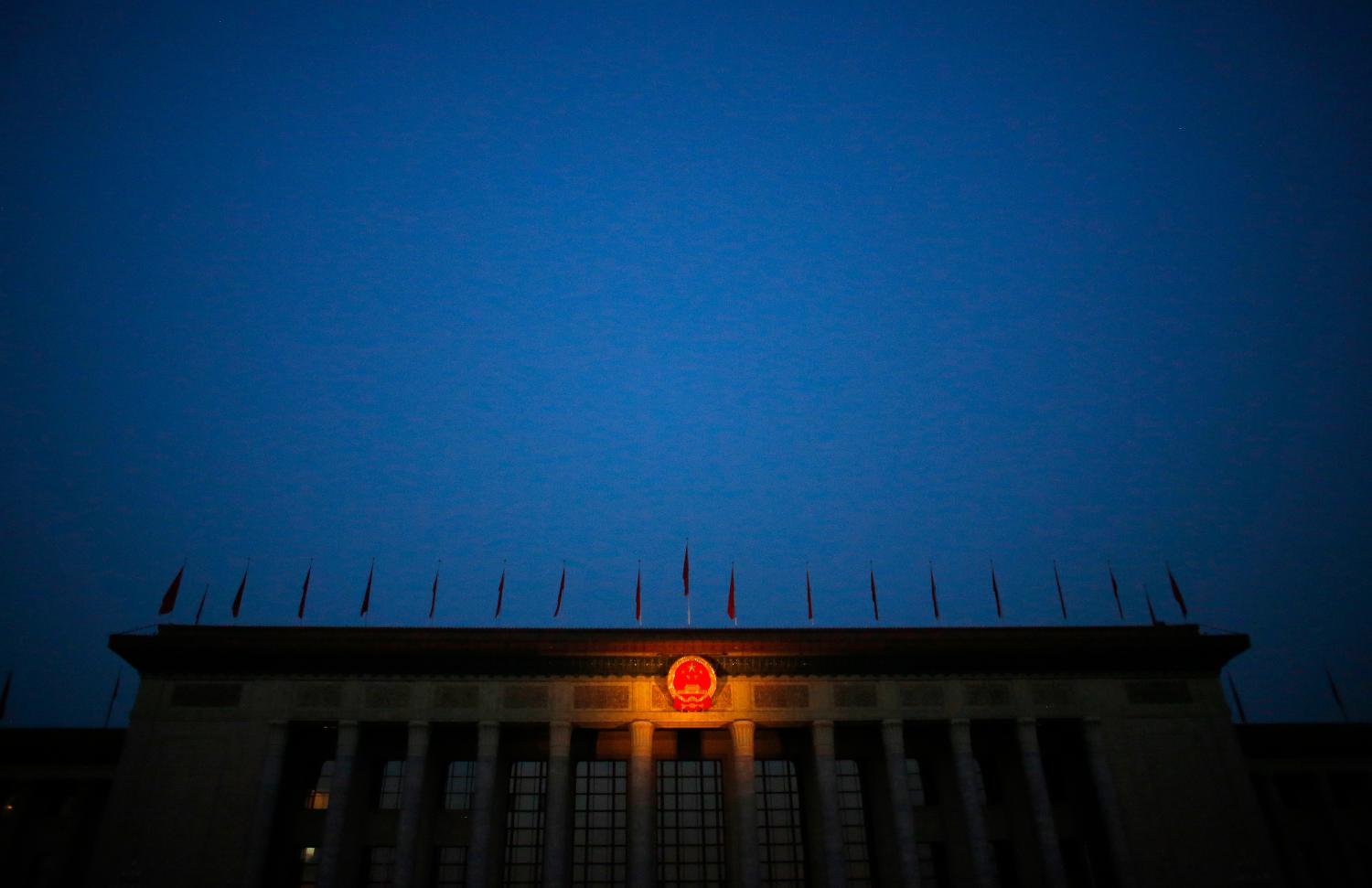
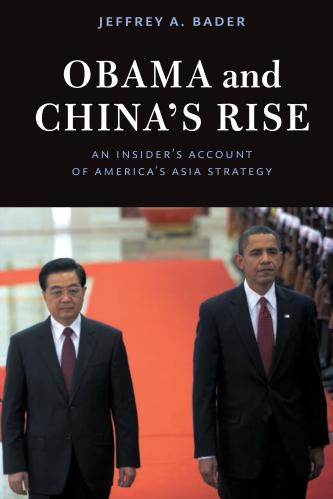
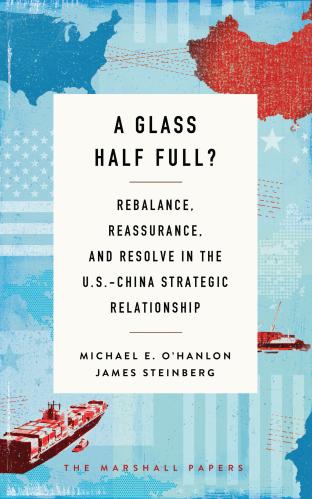
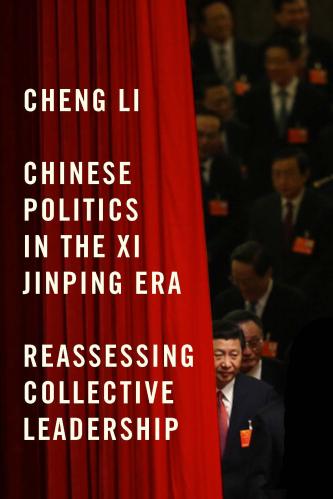
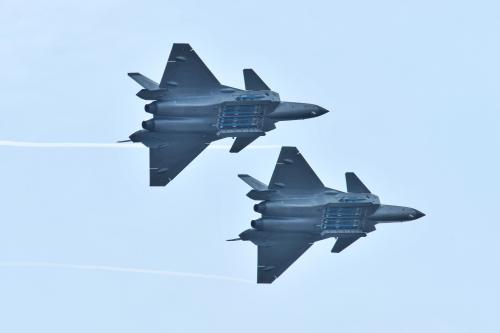
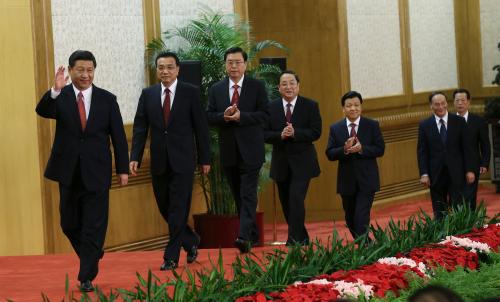
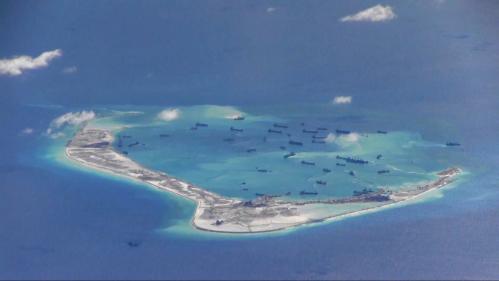




Commentary
Elite politics and foreign policy in China from Mao to Xi
January 22, 2019